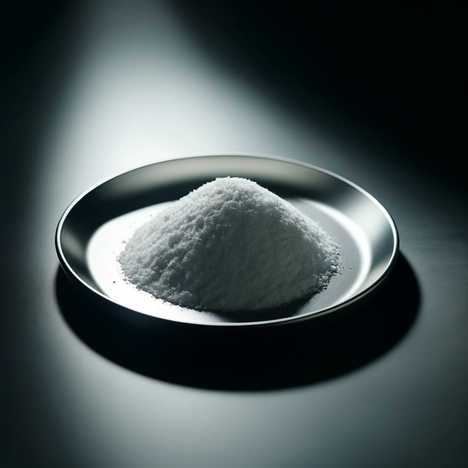Potassium bromide

In veterinary medicine, we are always on the lookout for effective treatments for a wide range of conditions affecting our faithful four-legged friends. One particularly challenging field is the treatment of epilepsy in dogs, a condition that can be distressing not only for the dog but also for the owner. Potassium bromide, a drug that has long been used in veterinary medicine, plays an important role here. This article examines potassium bromide in all its facets - from its function and benefits to the possible disadvantages in the treatment of epileptic dogs.
What is potassium bromide?
Potassium bromide (KBr) is a salt of the bromide ion and has been used in medicine to treat epilepsy since the late 19th century. In veterinary medicine, it has established itself as an effective anticonvulsant used alone or in combination with other drugs to control epileptic seizures in dogs. It works by stabilizing neuronal activity in the brain, thus reducing the frequency and severity of seizures.
Benefits of potassium bromide for dogs with epilepsy
Effective control of seizures
The main benefit of potassium bromide is its effectiveness in reducing the frequency and severity of epileptic seizures. For many dogs for whom other medications do not have the desired effect or who suffer from severe side effects, potassium bromide can be a valuable alternative or supplement.
Lower risk of liver damage
Compared to other anti-epileptic drugs, which can be a burden on the liver, potassium bromide is mainly excreted via the kidneys. This makes it a safe option for dogs with known liver problems or a higher risk of liver damage.
Long-term use option
Potassium bromide can be used long-term to provide long-lasting protection against seizures. This is particularly important for dogs with chronic epilepsy where continuous medication is required to maintain a normal and healthy life.
Disadvantages and precautions when using potassium bromide
Adjustment time and side effects
Adjustment to the correct dosage of potassium bromide may take some time, and during this phase side effects such as lethargy, increased appetite, increased thirst and ataxia (incoordination) may occur. Although these symptoms are often temporary, they can be distressing for the dog and the owner.
Risk of overdose
As potassium bromide is slowly metabolized and excreted in the body, there is a risk of overdose, especially if the dose is not carefully adjusted. An overdose can lead to severe side effects, including severe ataxia and even bromism, bromine poisoning.
Need for regular blood tests
To ensure that the concentration of potassium bromide in the blood remains within the therapeutic range and to minimize the risk of side effects, regular blood tests are required. This means additional effort and costs for the owner.
Use an important tool wisely
Potassium bromide is a proven and effective medication for the treatment of epilepsy in dogs. Its benefits, particularly its ability to control seizures without causing severe liver damage, make it a valuable option for many epileptic dogs and their owners. However, it is important to consider the potential drawbacks and risks and only use potassium bromide under the careful supervision of a veterinarian. When used correctly, potassium bromide can help to significantly improve the quality of life of epileptic dogs and allow them to live long and happy lives alongside their families.
If you notice any signs of hypersensitivity or poisoning in your dog, you should see your vet immediately. We are not a substitute for a vet, but we try to be as accurate as possible. Every dog reacts differently and we recommend you get a second opinion or consult your vet if in doubt.
Stay healthy and take good care of your four-legged friend!😊
Similar to Potassium bromide
Potassium chloride (KCl) is the potassium salt of hydrochloric acid. It forms colorless, salty-bitter tasting crystals that dissolve well in water. Potassium chloride is approved as a food additive...
Sodium chloride fulfills several important functions in the dog's body. Firstly, it is involved in the production of hydrochloric acid in the stomach, which is necessary for digestion. Secondly, it...
Potassium iodide (KI) is a chemical compound of potassium and iodine. It is an important component in the diet that plays a key role in the function of the thyroid gland. The thyroid gland uses...
Sodium iodide (NaI) is an iodine salt that is rarely found in its pure form in nature, but plays a role in many aspects of human and animal nutrition. As a source of iodine, sodium iodide supports...



